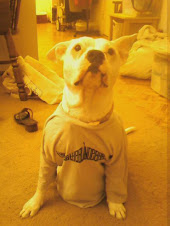Some interesting news today from the FTC and its new guidelines. Hmm...awhile back we posted about how rock bands can stay for free at Motel 6 if they give a shout out from the stage or via their website. In theory, I think that would be a problem for the FTC. Which sucks because it's a fair quid-pro-quo, I think; I mean, isn't it really just another type of promotion?
Prominent users of Twitter and Facebook won't be exempt from controversial new Federal Trade Commission guidelines that keep tabs on blogger freebies and giveaways, according to Richard Cleland, associate director for the FTC's advertising division. The agency absolutely plans to keep tabs on social networks as well as blogs in accordance with revised regulations that could see violators fined up to $11,000, he said.
Here's a sample scenario: a celebrity or other prominent figure with loads of friends on Facebook receives free hotel says from Hotel Chain X in exchange for running Hotel Chain X ads on his or her blog. If that person then signs up as a Facebook fan of Hotel Chain X--which, remember, could mean that the person's name can show up for his or her Facebook friends alongside Hotel Chain X display ads on the social network--he or she could be held liable by the FTC.
"It would be the same thing if you were going to pay the celebrity a thousand dollars to go register as a fan," Cleland said. "In that case, there wouldn't be any question about it."
Facebook spokesman Barry Schnitt told CNET News that the social network doesn't have anything concrete to say in reaction to the new regulations just yet. "I don't think we have anything to say other than that we've had an ongoing dialogue with the FTC and we'd love to talk to them more about what this means," Schnitt said. "I think we're already consistent with the spirit of it."
Schnitt added that some of the practices that may be encompassed by the new FTC guidelines are already banned by Facebook. "We say in our statement of Rights and Responsibilities, and people actually applauded this when we added it in a few months ago, that you will not use your personal profile for your own commercial gain such as selling your status to an advertiser." This is contained in section 4.2 of the document, he said.
As for Twitter, the FTC isn't letting you get a pass with the excuse that 140 characters--Twitter's famous text limit--is simply too short. "There are ways to abbreviate a disclosure that fit within 140 characters," Cleland said. "You may have to say a little bit of something else, but if you can't make the disclosure, you can't make the ad."
The question still remains as to exactly how the new guidelines will be enforced, given the sheer scope of online media--not to mention the millions upon millions of active Twitter and Facebook users.
"As a practical matter, we don't have the resources to look at 500,000 blogs," Cleland said. "We don't even have the resources to monitor a thousand blogs. And if somebody reports violations then we might look at individual cases, but in the bigger picture, we think that we have a reason to believe that if bloggers understand the circumstances under which a disclosure should be made, that they'll be able to make the disclosure. Right now we're trying to focus on education."
That's worth highlighting. Small-time bloggers freaking out over whether the FTC will really crack down on them may be pleased to know that the FTC at least claims its aim is to make everyone aware of what's right and wrong rather than to hunt down every Twitter user who may have been given a free toaster or something. Unless, that is, somebody rats them out--and at least one blogger is already raising concerns that angry readers may use the regulations to attempt to get back at blogs they don't like.
Industry blogger Peter Feld of Brandchannel thinks he can see another outcome. "A safe prediction for 2010: some big scandal when the first celebrity to run afoul of the new rules, by promoting a product on Twitter or a talk show, gets fined by the FTC." (Cnet.com)


No comments:
Post a Comment